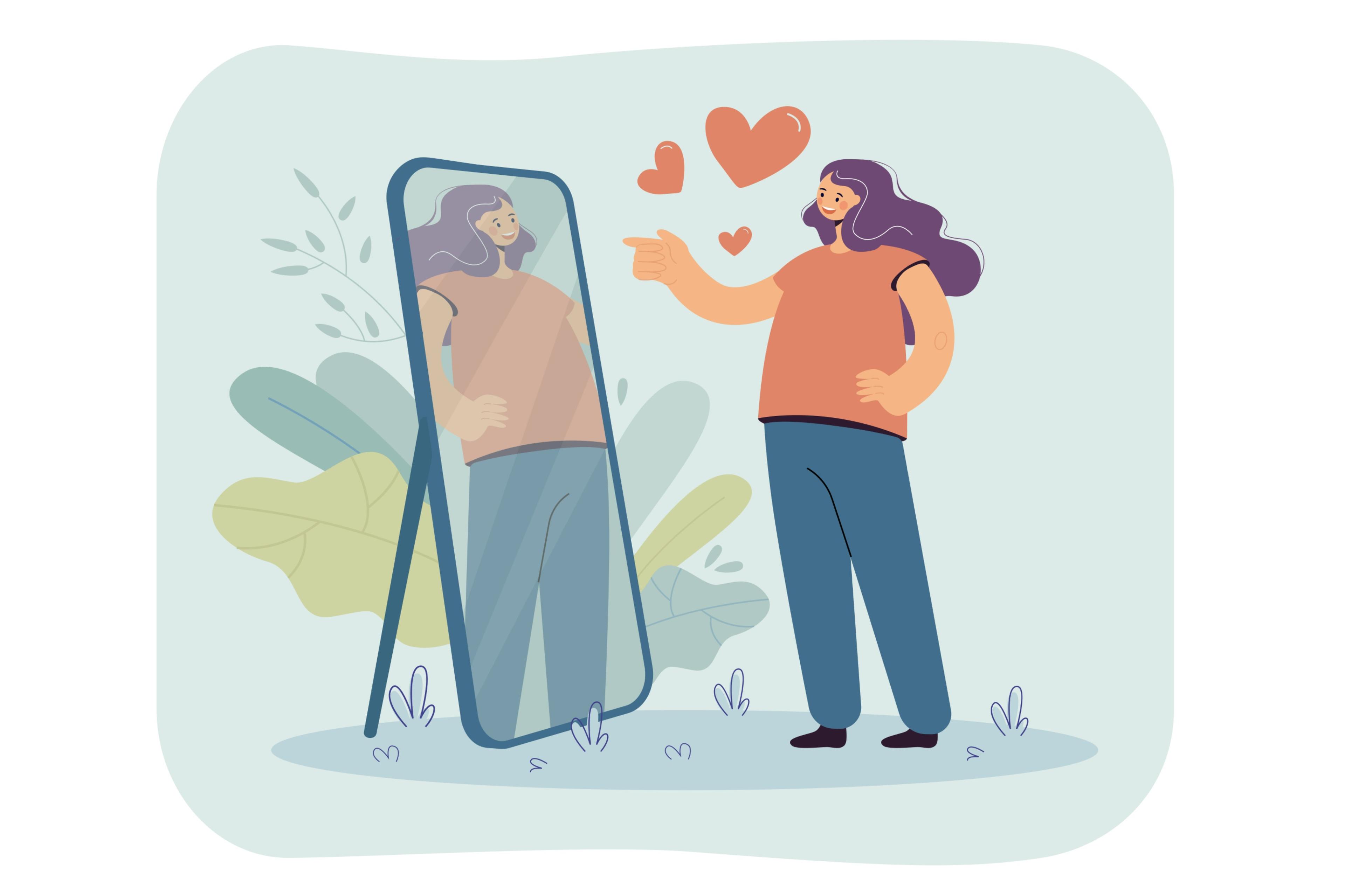Low self-esteem does not always look like someone staring into a mirror and saying they hate what they see. It looks like a friend who edits their story ten times before posting. It looks like the coworker who rewrites a simple message because they are afraid of sounding annoying. It looks like the person who seems put together on social media but disappears the moment things feel even slightly uncomfortable.
We live in a culture that trains people to curate, optimize, and brand themselves. That pressure can make low self-worth feel almost normal. If everyone is comparing, doubting, and second guessing, how do you tell when it has gone from momentary insecurity to a pattern that quietly shapes a life. The signs of low self-esteem often hide inside habits that are praised as polite, humble, or chill.
One of the clearest patterns is constant self deprecation. Not the occasional joke about forgetting your keys, but a steady stream of comments that land just a bit too harsh. People say things like “I am so dumb” or “Of course I messed that up” before anyone else can form an opinion. Online, it turns into captions that drag themselves for likes, or comments like “Why did I even post this” under their own photo. It can sound funny in the moment, yet it functions as preemptive rejection. If you insult yourself first, no one else can hurt you.
Another sign sits in the way someone handles compliments. A simple “You did a great job on that presentation” becomes a negotiation. They insist it was nothing, point out what went wrong, or redirect praise to other people. On social media, they reply to “You look amazing” with “It is just the filter” or “It was good lighting.” Accepting kindness feels unsafe, almost dishonest, because deep down they do not believe they deserve it. So they deflect until the compliment shrinks into something they can tolerate.
Over-apologizing is another quiet tell. People with low self-esteem say sorry for taking up space in a group chat, for sending a second message, for existing in someone’s notifications. They apologize for asking a simple question in a meeting, or for being “so dramatic” when they share a real concern. In DMs, you see apology chains: “Sorry for the rant,” “Sorry if that was too much,” “Sorry I am being annoying.” It is not politeness. It is a belief that their presence is an inconvenience.
Then there is the chronic need for reassurance. Not just asking for feedback, which is healthy, but needing repeated confirmation that they are okay, that they did not mess up, that nobody is secretly angry. You can see it after they send a risky message, like setting a boundary or sharing a feeling. If they do not get an instant response, anxiety kicks in. They double text, reread the chat, replay the last call. In group spaces, they scan reactions on every message, watching who viewed, who liked, who stayed silent, and they interpret silence as rejection.
Perfectionism often gets framed as ambition, although it frequently runs on low self-worth. People with this pattern delay posting anything unless it is flawless. Drafts sit unsent in notes apps. Creative projects stay in progress for months because they are never “good enough.” Offline, it looks like rewriting emails over and over, over-preparing for small tasks, or avoiding opportunities entirely unless they feel certain they will excel. It is not just about high standards. It is about fear that any imperfect attempt will expose them as a failure.
People pleasing is another familiar sign. It shows up when someone says yes to every favor, even when they are exhausted. They adjust their opinions to match whoever they are talking to. In group chats, they are the first to agree, the first to soften conflict, the first to offer help even at a cost to themselves. They rarely ask for support in return. Their role becomes “the dependable one,” which sounds flattering, yet often hides a deeper fear that love is conditional on usefulness.
Social comparison is amplified by the internet, and low self-esteem amplifies that comparison again. Scrolling does not feel like casual entertainment, it feels like a quiet competition they are always losing. Friends’ promotions, travel photos, soft launch relationships, gym progress, and aesthetic apartments all become proof that they are behind. Some people cope by trying to keep up, posting curated snapshots designed to signal that they are thriving. Others retreat, stop posting altogether, and watch from the sidelines, convinced that whatever they share will look embarrassing next to everyone else.
Another sign is disappearing whenever there is conflict. Someone with low self-esteem often experiences disagreement as confirmation that they are fundamentally wrong, broken, or too much. Instead of responding, they leave messages on read, mute conversations, or quietly fade out of group spaces. In relationships, they might stop replying because they feel they have already ruined everything and do not know how to repair it. It looks like ghosting from the outside. Inside, it feels like shame.
Low self-esteem can also show up in who someone chooses to be close to. They may gravitate toward people who criticize them, mock them, or treat their feelings casually, because that treatment matches what they already believe about themselves. They might stay in friendships or relationships where they are always the butt of the joke, or the backup plan, because leaving would require the belief that they deserve better. Even when they complain about how they are treated, they struggle to imagine walking away.
There is also the habit of shrinking success. When something good happens, they rehearse all the reasons it does not really count. A promotion becomes “probably just luck.” A viral post becomes “the algorithm being weird.” Good feedback becomes “people being nice.” They rarely share wins online, or they do it with heavy disclaimers so nobody thinks they are bragging. The story they tell about their own life is muted and small, even when the facts are not.
You can see the emotional cost in how tired people seem. Holding low self-worth in a world that constantly asks you to perform confidence is exhausting. It means managing the distance between how you present and how you feel, double checking every word, second guessing every reaction, editing yourself for imaginary audiences. Sometimes the response is to over-function and over-perform. Sometimes it is to log off, cancel plans, and sink into the background. Both can be rooted in the same belief that they are not enough.
None of these patterns on their own prove anything. Everyone has days when they self deprecate, stalk their own messages, or dodge a difficult conversation. What matters is the pattern, the underlying story about worth that repeats. When signs of low self-esteem start to feel like your default setting, not just a mood, life starts to orbit around fear of being exposed as not good enough. That fear shapes what you say yes to, what you walk away from, and how you let people see you.
The internet will always reward performance, comparison, and self branding. It is designed for that. But beneath the memes and aesthetics, there are real people trying to make sense of their value in public. Naming these patterns does not solve them. It does offer a small shift. You begin to see that what looks like confidence or carelessness in others might carry its own doubt, and that your own habits are not random. They are a language your self-worth has been speaking for years.









.jpg&w=3840&q=75)


.jpg&w=3840&q=75)

